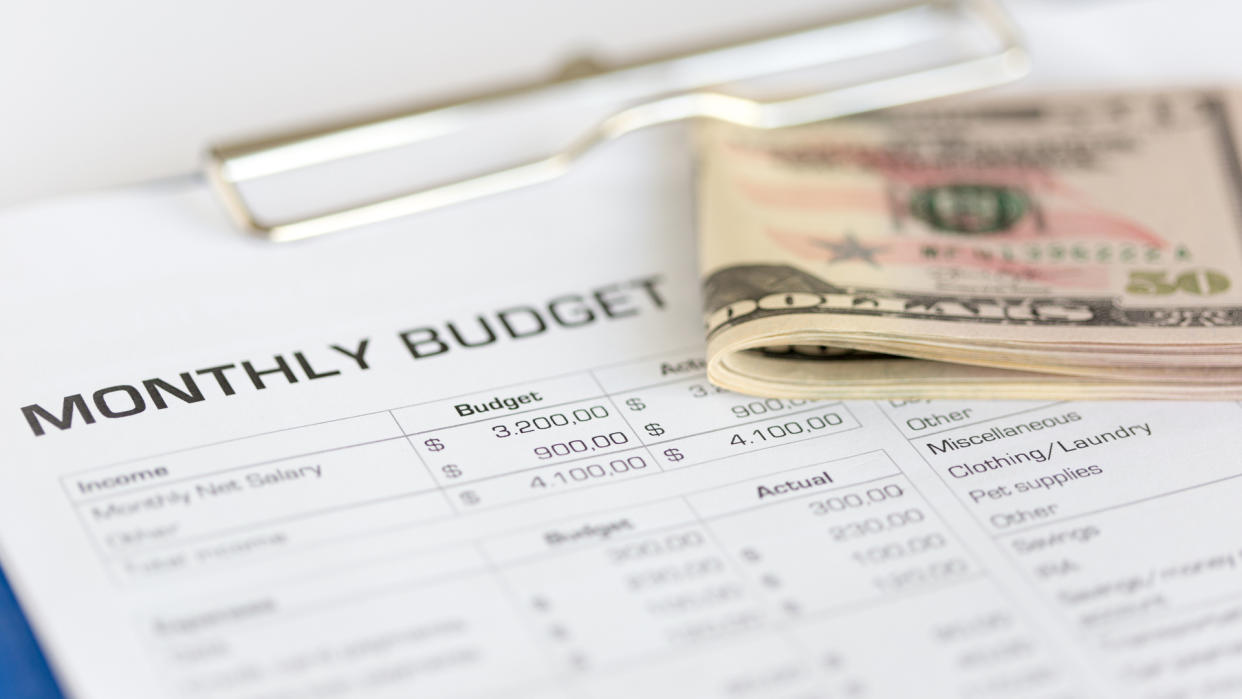Budgeting Tips for People With Fluctuating Incomes

An estimated 70.4 million Americans, comprising over 42% of the U.S. workforce, work freelance in the U.S. in 2022. That number is expected to climb to 86.5 million over the next five years, according to Statista, and account for more than 50% of the workforce.
More Freelancing: 8 Remote Jobs That Pay at Least $20 Per Hour
Learn: Here’s How Much Cash You Need Stashed If a National Emergency Happens
Freelancers, as you likely know, don’t get paid a set salary by one company; instead, these gig and contract workers make income from clients. As a freelancer myself, I can vouch that this income can be irregular if not downright volatile. Some months I rake in $10,000. Other months I make $500. In the tumultuous storm that was 2020, weeks upon weeks lapsed by without a penny coming in.
Financial planning as a freelancer is inherently difficult because you can rarely be certain of exactly what you’ll make on an annual basis. Fortunately, despite the ups and downs of one’s finances, there are proven ways to budget with a fluctuating income. Financial experts recommend the following tips.
List Your Monthly Expenses
“Even if your income fluctuates, your expenses may be the same each month – which is easier to track,” said Dr. JeFreda Brown, founder and CEO of Xaris Financial Enterprises.
Set a Baseline Average
If you have a fluctuating income, my best budgeting advice is to find an average,” said Jake Hill, CEO of DebtHammer. “This needs to happen over at least 6 months, but if you can get a year, that’s even better. Add up all your income from that time (from all sources) and divide it by the number of months. This will give you your average monthly income and allow you the opportunity to budget more easily.”
Brown agrees that it’s best to use 12 months of income, and she recommends comparing the average to your lowest-earning month. “Whichever one is lower, use that as your base monthly income when building a budget. As your income increases, your budget can be tweaked.”
Take Our Poll: Do You Have a Side Gig or Other Hustle?
Underestimate Your Income
“It’s really best to underestimate your income and overestimate your expenses when budgeting, especially with an unstable income,” Hill said. “You will have lean times. That’s the nature of a fluctuating income. If you can count on that, you can budget in a way that allows you to have a buffer against the harder times.”
Create a Budget for Basic Expenses
Budgeting for your monthly and annual expenses – and keeping your spending within that budget – will help keep you on track through your businesses’ ups and downs.
“When incorporating annual expenses, divide them by twelve to be accounted for monthly and then subtract all those expenses from your monthly net income, suggested Alissa Krasner Maizes, J.D., financial planner and founder of Amplify My Wealth.
Sync Bill Payments With Your Income Schedule
“One of the simplest, most effective moves you can make is to time your bills with your income,” said Rivka Schreiber, CFP and founder of Flexible Finances. “For example, if your business is seasonal and you have more business in certain months, pay ahead on some bills in those months. For example, pay the full year of car insurance in those months, or pay ahead on your utilities an extra month. Pay any year-long professional subscriptions in the month you collect the most revenue from your clients. This approach will take the pressure off slower times of the year when your income is lower. If you are unable to pay ahead some months, put the additional income away in savings earmarked to cover 2-3 months of your core bills.”
Calculate the Impact of Saving a Little Extra
“If you can visualize the long-term impact of little-and-often savings, it will give each sacrifice a sense of purpose,” said Scott Nelson, founder of Money Nerd. “If you want a new car, for example, work out how much it will cost you, how long you are prepared to wait, and divide the amount needed by the time available: Your savings then have a tangible purpose and you’re much more likely to follow them.”
More From GOBankingRates
Daria Uhlig contributed to the reporting for this article.
This article originally appeared on GOBankingRates.com: Budgeting Tips for People With Fluctuating Incomes

